Roof inspections are more than just a casual glance at the top of your house. They involve a comprehensive examination of the roof's condition to ensure everything is functioning properly. During a visual inspection, a trained professional can climb up to inspect shingles, flashing, gutters, and even the attic. This process checks for visible damage, wear, or potential issues that might need attention.
Technology has advanced the way they are done. Drones equipped with cameras can provide a detailed overview without the need for a ladder. Infrared can detect heat loss and moisture issues that aren’t visible to the naked eye. These methods offer a more thorough process, ensuring nothing is missed.
The process begins with an initial assessment where obvious issues like missing shingles or damaged gutters are noted. Then comes a detailed examination of the components, including structural integrity, water damage, and insulation quality. After the inspection, you receive a detailed report highlighting the findings and offering recommendations for maintenance or repairs.
Professional inspections far outweigh the benefits of a DIY approach. Trained inspectors know exactly what to look for and can spot problems that an untrained eye might miss. Moreover, they have the right tools and safety equipment to conduct the inspection safely and accurately. DIY can be risky and might overlook critical issues, leading to more significant problems down the line.
Benefits
Regular inspections are essential for preventative maintenance. They help detect minor issues before they escalate into major problems, which can save homeowners a lot of hassle and expense. By catching small problems early, you can address them promptly, prolonging the lifespan of your roof and reducing the need for costly repairs or replacements.
Financial savings are another significant benefit. A well-maintained roof can improve energy efficiency, potentially lowering your energy bills. Proper insulation and ventilation keeps your home comfortable year-round, reducing the load on your heating and cooling systems. Furthermore, many insurance companies offer premium reductions for homes that undergo regular inspections, as they are less likely to suffer extensive damage.
Consequences Of Neglect
Neglecting inspections can lead to severe structural damage, which can eventually lead to a collapse, posing a serious risk to the safety of your home and its occupants. Water damage can also affect other parts of the house, such as walls and ceilings, leading to extensive and costly repairs.
Health hazards are another consequence of ignoring roof inspections. Moisture from leaks can promote the growth of mold and mildew, which can severely impact indoor air quality and residents' health. Mold spores can cause respiratory issues, allergies, and other health problems. Additionally, a compromised roof can become an entry point for pests and insects, leading to infestations that are both a nuisance and a health risk.
General guidelines suggest that residential properties should have their roofs inspected at least once a year. However, the frequency can vary depending on the type of roof and the materials used. For instance, those made of materials like asphalt shingles may require more frequent inspections compared to metal. Additionally, the climate and regional weather conditions play a significant role in determining how often it should be inspected. Areas prone to extreme weather conditions, such as heavy snowfall or strong winds, may require more frequent inspections to ensure the roof remains in good condition.
Seasonal inspections are particularly beneficial. Inspecting before and after harsh weather seasons can help address seasonal wear and tear. For example, one in pre-winter can identify and fix issues that might worsen with heavy snowfall, while a post-winter inspection can assess damage caused by snow and ice. Timing these to align with these seasons can maximize their effectiveness and ensure your roof is ready to withstand the elements.
Situational inspections are also important in maintaining your roof's health. After major weather events such as storms or hurricanes, it's essential to have your roof inspected for potential damage. They are also recommended before buying or selling a property to ensure the roof is in good condition. Special considerations should be given to older homes or those that have recently undergone repairs, as these may require more frequent checks to ensure everything remains intact.
Chayah Construction’s professionals use advanced technology and tools to provide accurate and thorough inspections, ensuring nothing is overlooked. Our commitment to quality and customer satisfaction is evident in the detailed reports we provide, complete with clear recommendations for maintenance or repairs.
Trust Chayah Construction for your roof inspection needs and experience the peace of mind that comes with knowing your home is in capable hands. Contact us today to schedule your inspection and take the first step towards ensuring the safety and longevity of your roof.
Frequently Asked Roofing Questions
Q1. What Happens If My Roof Fails?
A1. If significant issues are found, the inspector can provide a detailed report outlining necessary repairs. While this might seem daunting, addressing these problems promptly can prevent more severe damage and costly repairs in the future.
Q2. What Are The Most Commonly Overlooked Roof Problems?
A2. Homeowners often miss subtle issues like small leaks, minor shingle damage, or flashing deterioration. Professional inspectors are trained to spot these less obvious problems, which can prevent major damage over time.
Q3. Can A Roof Inspection Impact My Home's Resale Value?
A3. Absolutely. A recent, clean report can boost buyer confidence and potentially increase your home’s resale value. Conversely, discovering and fixing issues beforehand can prevent last-minute negotiations or deal breakers during a sale.
All Rights Reserved | Chayah Construction
